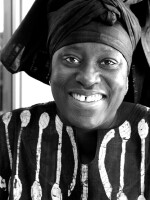DEBORAH AMOS, host:
This is MORNING EDITION from NPR News. I'm Deborah Amos.
RENEE MONTAGNE, host:
And I'm Renee Montagne. In this part of the program, we turn to some complicated political relationships in Africa. We'll hear the first in our series on how China has carved out an increasingly important role throughout that continent.
AMOS: First, an update on Zimbabwe. South African President Thabo Mbeki has been the chief negotiator in Zimbabwe. Mbeki doesn't talk much about progess there, but last week, President Robert Mugabe and his arch political rival, Morgan Tsvangirai, met for the first time in a decade and shook hands. They agreed to begin immediate negotiations that could lead to a power-sharing government in Harare. NPR's Ofeibea Quist-Arcton is monitoring those developments.
OFEIBEA QUIST-ARCTON: The South African mediators warned that there would be a total news blackout, and they're sticking to their word. They've successfully thrown a ring of silence around the Zimbabwe talks, which began Thursday somewhere in Pretoria. Little has leaked out.
The South African president said, in a briefing yesterday, that the discussions were continuing between Robert Mugabe's ZANU-PF party negotiators and representatives of Morgan Tsvangirai's opposition Movement for Democratic Change. There's been deadlock in Zimbabwe since a defiant Mugabe was re-elected in a disputed and widely condemned June 27th presidential runoff.
Tsvangirai boycotted the election because of violence against his supporters. Shocking images of men and women, young and old, beaten into submission, with broken limbs and badly bruised bodies made international headlines. But the political standoff looks set to continue between Mugabe and Tsvangirai.
New mediation efforts were announced, with both men laying claim to the presidency. But the opposition accused Mbeki of bias in favor of the peace-brokers from the both the United Nations and the African Union. Tsvangirai won that concession. Now the power-sharing plan is to narrow the yawning gap between the two sides and conclude a political settlement that could lead to a transitional arrangement and possibly a grand coalition national unity government.
While the South Africans are keeping mum about progress at the Zimbabwe talks, they've raised objections about a broadened list of Mugabe's allies targeted by new sanctions imposed by both the United States and the European Union last week. Washington and the EU added more names to the list of Zimbabweans who've been hit by visa bans and the freezing of their financial assets.
South Africa's deputy foreign minister, Aziz Pahad, suggested that such action amounted to outside interference, implying that this could undermine the Zimbabwe peace talks. Ofeibea Quist-Arcton NPR News, Accra. Transcript provided by NPR, Copyright NPR.






